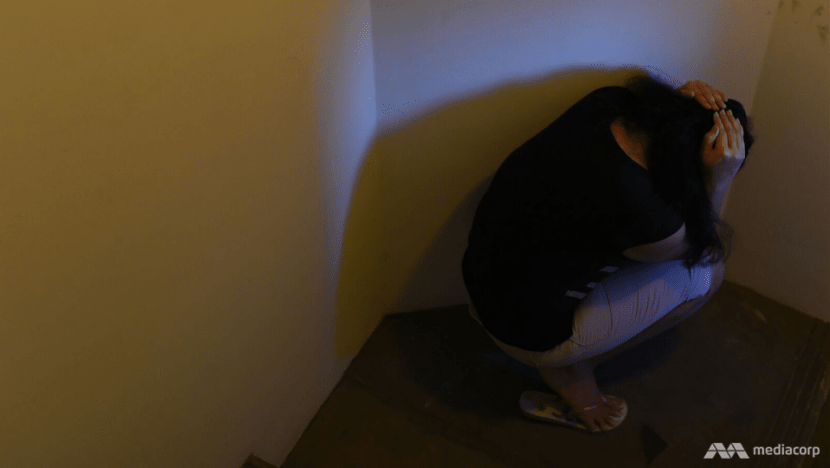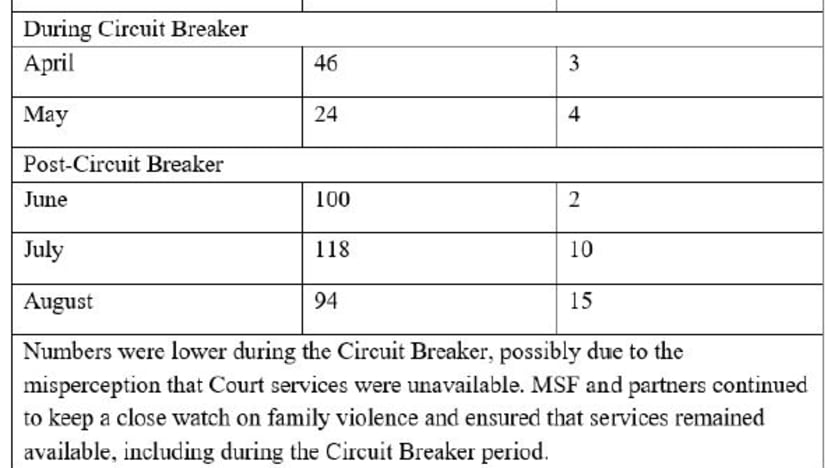Fewer personal protection orders against family violence issued in April and May during COVID-19 circuit breaker

Photo illustration of an assault. (Photo illustration: Ngau Kai Yan)
SINGAPORE: Fewer personal protection orders (PPO) were issued by the Family Justice Courts during the "circuit breaker" months of April and May, compared to other months this year.
In his written answer to Sengkang GRC Member of Parliament (MP) He Ting Ru on Tuesday (Oct 6), Minister for Social and Family Development Masagos Zulkifli shared the number of PPOs and domestic exclusion orders (DEOs) issued every month from the start of the year to August.
People experiencing family violence may apply to the Family Justice Courts for a PPO or a DEO under the Women's Charter.
The number of police reports of family violence rose during the circuit breaker period. Reports were filed for offences associated with family violence, such as hurt, criminal force and assault, criminal intimidation and wrongful confinement, said the police in May.
READ: 22% increase in family violence reports since start of circuit breaker period: SPF
The police received an average of 415 family violence reports per month since April, Home Affairs Minister K Shanmugam said, addressing another question from Ms He about the number of domestic abuse cases since the start of the circuit breaker.
"MISPERCEPTION THAT COURT SERVICES UNAVAILABLE"
The lower number of PPOs issued during the circuit breaker was "possibly due to the misperception that court services were unavailable", said Mr Masagos.
"The (Ministry of Social and Family Development) and partners continued to keep a close watch on family violence and ensured that services remained available, including during the circuit breaker period," he added.

On average, the Family Justice Courts granted about 75 PPOs and seven DEOs per month since the start of the circuit breaker period, Mr Masagos said.
“The monthly average from April to August is similar to the monthly average for the first three months of 2020," he added.
40 PER CENT OF CASES INVESTIGATED
Ms He also asked Mr Shanmugam about the number of reports that were investigated by the police and the percentage of such cases that eventually led to charges being brought by the Attorney-General's Chambers.
Investigations were initiated in more than 40 per cent of the cases, Mr Shanmugam said.
“For all reports, police will assess the facts and circumstances of the case to determine if investigations should be initiated,” he added.
About 3 per cent of the cases investigated were prosecuted in court and about 12 per cent were given warnings in lieu of prosecution, Mr Shanmugam said.
“Family violence cases often have complex underlying issues and prosecution may not always be the optimal solution," he added.
“In some cases, other avenues of assistance may be more appropriate. For example, police may advise the victim to apply for a protection order, or refer the family to social service agencies for counselling and assistance.”
READ: New AWARE chat service to provide more support for victims of abuse and violence
Gender-equality advocacy group AWARE said that they have seen a significant increase in the number of calls about family violence to its helpline.
In a report on Jun 30, AWARE said there were 109 calls to their helpline in March about family violence, compared to the 66 calls a year before.
In April this year, the helpline received 129 of such calls, a 119 per cent increase from the 59 calls it received in April last year.
There was also a 180 per cent increase in such calls in June 2020 compared to the same month last year, from 76 calls to 180 calls.
“These numbers are likely to be higher if we take into account all the individuals who are not able to reach out for help and support because they are isolated with their abusers and lack the privacy to call,” AWARE said.
BOOKMARK THIS: Our comprehensive coverage of the coronavirus outbreak and its developments
Download our app or subscribe to our Telegram channel for the latest updates on the coronavirus outbreak: https://cna.asia/telegram














